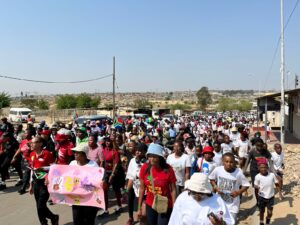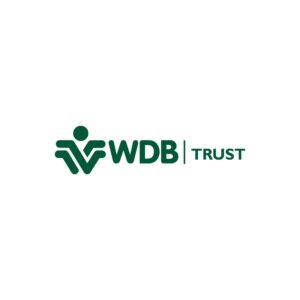It’s a profession that has truly stood the test of time, and for which there is still a long future. Social work, which is rooted in the age-old imperative of providing care for vulnerable people, remains highly relevant to meet critical needs in South African communities that battle poverty, crime, unemployment and mental health issues. At both the frontlines and in the realms of policy and research, the country’s social workers play a crucial role in improving people’s lives and bringing about positive and sustainable change in our communities.
The requirements to enter the social work profession in South Africa are regulated by the Council for High Education (CHE) and the South African Council for Social Service Professions (SACSSP). Once accredited, the four-year Bachelor of Social Work degree (BSW) is registered by the South African Qualifications Authority (SAQA). During their training, students must undertake a Work Integrated Learning (WIL) component at a registered social work and social welfare organisation as guided by the norms and standards of the profession. The aim is to acquire a skills-set that includes working with individuals and families, as well as small groups and in communities. In addition, students learn about social work values and ethics, including being empathic, compassionate, supportive and caring.
SACAP (The South African College of Applied Psychology) has announced that its BSW will now be available on its Online Campus to make social work education and training more easily accessible. Dr Poppy Masinga, Head of the Social Work & Community Development Faculty at SACAP (The South African College of Applied Psychology) says, “Since the launch of our BSW programme, potential students located in Limpopo, Mpumalanga, Northern Cape, Eastern Cape, the Free State, North-West and in other countries, such as Namibia and Zimbabwe applied and were accepted into the programme. However, these potential students could not accept their offers due to relocation and financial constraints. Given SACAP’s robust growth strategy, it has been a natural progression for us to now offer the fully accredited BSW through our online campus with effect from June 2025.”
SACAP’s carefully designed BSW programme consists of several social work specific modules and applied psychology modules that all align with the South African Council for Social Service Professions (SACSSP)’s and CHE regulatory requirements:
- All social work modules incorporate compulsory online synchronous 90-minute live webinar classes and additional resources such as videos, podcasts, infographics, or activities that are provided to enhance learning. The aim is to focus on the academic, personal and professional competencies demanded by the social work profession.
- All applied psychology modules have been designed with a psychology foundation to promote cross-disciplinary and interdisciplinary learning. This means online BSW students are placed in psychology modules with other SACAP psychology students to enhance learning and interdisciplinary learning.
- The WIL part of the programme follows a hybrid model with individual and group supervision offered live online by SACAP Faculty members. Students also benefit from in-person guidance from their placement agency supervisor, a registered social worker, who provides ongoing mentoring, support and professional insights throughout their internship. This dual-supervision model is designed to strengthen the integration of academic learning with practical fieldwork. SACAP WIL placement sites are offered in most major cities. This is the only aspect of the education programme that will necessitate travel and/or temporary relocation as students will be expected to undertake their WIL at fully registered social work and social welfare agencies, accredited by SACAP.

How work readiness training opens up career opportunities in social work
SACAP WIL co-ordinator, Thando Msimang says, “Many of our NGO WIL partners highlight how well-prepared SACAP students are for placement. They appreciate our students’ understanding of placement requirements, their clear boundaries of practice and competence, and their ability to integrate relevant and up-to-date social work models, theories, and approaches – such as Green Social Work. As one of the first higher education institutions in South Africa to offer Green Social Work at under-graduate level as a relevant topic, we are proud that our students consistently demonstrate alignment with the latest professional development standards. This enables them to provide new perspectives and demonstrate that they can be a good fit for future employment.”
SACAP WIL co-ordinator, Thando Msimang says, “Many of our NGO WIL partners highlight how well-prepared SACAP students are for placement. They appreciate our students’ understanding of placement requirements, their clear boundaries of practice and competence, and their ability to integrate relevant and up-to-date social work models, theories, and approaches – such as Green Social Work. As one of the first higher education institutions in South Africa to offer Green Social Work at under-graduate level as a relevant topic, we are proud that our students consistently demonstrate alignment with the latest professional development standards. This enables them to provide new perspectives and demonstrate that they can be a good fit for future employment.”
Adding to this, Denean Albertus, SACAP WIL co-ordinator says, “WIL is at the heart of our programme, ensuring that students are consistently exposed to real-world practice standards alongside the theoretical training. What makes WIL particularly valuable is that it does more than just provide students with hands-on learning experience, it also prepares them for employment and helps them discover their passions and areas of interest within the profession. Through placements in diverse NGOs and community-based settings, our students are not only able to explore their strengths and shape their career paths, but they are also making a real difference and networking in the real world.”
Dr Masinga says, “What makes SACAP’s BSW online programme unique compared to other institutions is our focus on environmental social work and sustainable development, with a special focus on promoting social, economic and environmental justice. In addition, we designed the curriculum to place emphasis on training students to be critical thinkers, innovators, transformative leaders and advocates for policy change. We also place emphasis on training our graduates to be global citizens through our international and regional collaborations with several universities. In addition, students are empowered with networking and communication skills through our annual inter-university student-led conference that was launched in 2023 that involves universities from USA, Germany, Ghana, Burundi, Kenya and South Africa.”
While four years of full-time online study can be challenging and may not suit everyone, SACAP’s new online BSW is specifically designed for high engagement. Dr Masinga concludes, “Prospective BSW students need to be passionate about changing people’s lives. They need to possess specific attributes such as being compassionate, resilient, and culturally sensitive. They need to be willing to immerse themselves in those spaces where the need for social services is pronounced. Often these are neighbourhoods that are marginalised and underdeveloped. They need to be able to instil hope where there is hopelessness.”
Although studying online, like any studies, comes with challenges, SACAP believes the online BSW programme has overwhelming benefits, particularly for the next generation of students who are well-prepared for living and working in a digital world. The programme is ideal for students who want to balance studying and working at the same time. To enjoy maximum benefit, it is critical to have reliable internet access.
Applications for SACAP Bachelor of Social Work online are open now. Find out more here.
48








